
Genesis 6:1-13 Bible Teaching
Genesis 6 details human corruption leading to God's decision to flood the Earth, sparing only Noah. It discusses human free will, divine emotions, and the Nephilim.

Genesis 6 details human corruption leading to God's decision to flood the Earth, sparing only Noah. It discusses human free will, divine emotions, and the Nephilim.

Script currently unavailable.

Shawn's teaching focuses on genealogies tracing the Messiah's lineage, the division of "sons of God" and "sons of men," honoring God's exalted, avoiding idolatry, and the spiritual journey of figures like Enoch and Noah. It emphasizes faith, righteousness, and prophetic wisdom, highlighting the Messiah's lineage through Shem and King David.

The teaching contrasts Cain's sinful actions with Abel's righteousness, emphasizing love and unity among believers. It discusses Cain's punishment, God's mercy, and early biblical genealogy, highlighting human advancements and divine interactions.
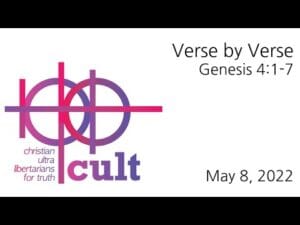
Shawn's teaching on Genesis 4:1-15 examines Cain and Abel's story, focusing on offerings, consequences of Cain's actions, themes of divine justice, grace, and the importance of faith.

Shawn stresses sound exegesis, noting not all scripture is universally applicable. Adam's naming of Eve shows human wisdom. God's mercy foreshadows Christ's redemption.
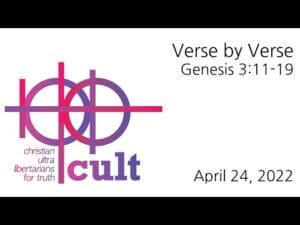
The teaching summary highlights themes of accountability, self-reflection, and consequences of choices from the Genesis narrative. It emphasizes personal responsibility, God's fairness, and the distinct consequences for Adam, Eve, and the serpent. It also discusses the dynamics of male-female relationships post-Fall and the importance of faith in Christ for restoration. The narrative underscores toil as a reminder of human limitations and reliance on God.
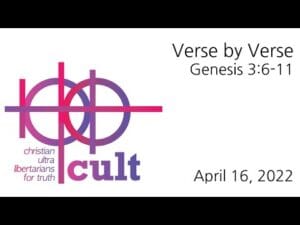
Eve and Jesus faced temptations appealing to desires; Eve succumbed, Jesus resisted. Shawn emphasizes spiritual integrity, overcoming sin's shame through Jesus' sacrifice.
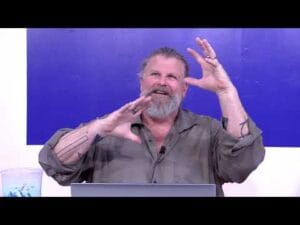
Shawn explores the serpent's identity in Genesis, suggesting it was a primate, not a snake, based on the Hebrew "nachash," implying intelligence and speech, challenging traditional views.
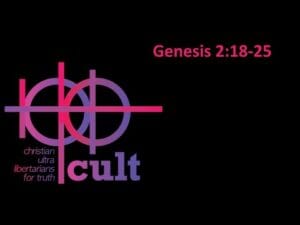
Shawn's teaching on Genesis 2:18-25 highlights human need for companionship, equality, and complementarity in relationships, emphasizing marriage as a union of one man and one woman, rooted in biblical creation, not ceremonies.
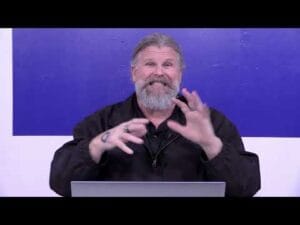
Genesis 2's garden creation, river division, and man's labor highlight free will vs. determinism. Shawn teaches free will is key to understanding evil, accountability, and spiritual choice.
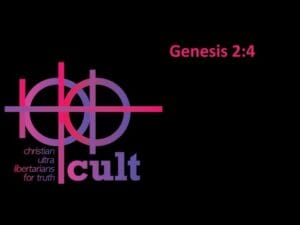
Shawn's teaching contrasts Genesis 1 and 2, explores God's names, Hebrew terms for man, and the symbolism of trees, emphasizing divine planning, presence, and human connection.

Shawn's teaching highlights humans as God's image-bearers with dominion, emphasizes stewardship, herbivorous creation intent, and contrasts God's rest with human labor.
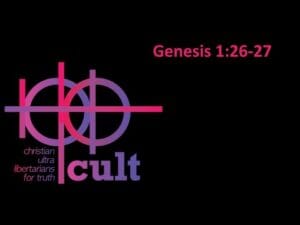
Genesis 1:26-27 discusses God's plurality, interpreted as addressing angels or using majesty, not Trinitarian. Emphasizes monotheism, one God, Jesus as Lord. Ezekiel 28 links Tyre's king's pride to Satan's fall. Humans, in God's image, have unique roles, sparking Satan's envy.

The teaching explores Genesis' creation narrative, focusing on "bara" (create) vs. "asah" (make), emphasizing faith, unity, and varied interpretations without rigid stances.
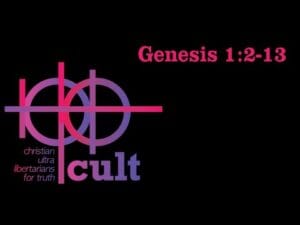
Shawn's teaching on Genesis 1:2-13 highlights God's transformative power, aligning creation with scientific theories, emphasizing spiritual renewal, and exploring Jewish traditions.
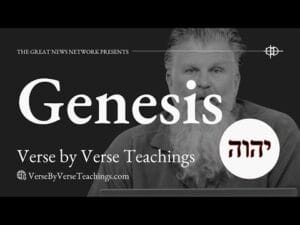
Shawn's teaching focuses on the spiritual principles of the Old Testament, emphasizing God's creation through His word, the unity of God and the Word, and a monotheistic view of God as Elohim. It challenges traditional Trinitarian views, highlighting God's benevolent nature and the significance of the material world for spiritual growth.
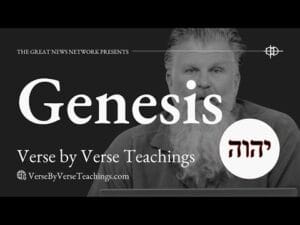
Shawn teaches the Old Testament as foundational, focusing on its divisions (Torah, Nevi'im, Ketuvim) and historical context, emphasizing spiritual power, love, and learning over ritual.

Hosts reflect on growth, Christian values of love and freedom, diverse issues. Ethan evolves, Steven cautions on faith freedom, Sean values co-host bonds.

God's presence as light implies evil as darkness, not directly created but as absence of light. Scripture supports God creating both light and darkness, defining evil.